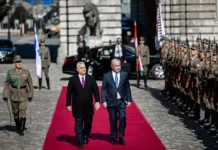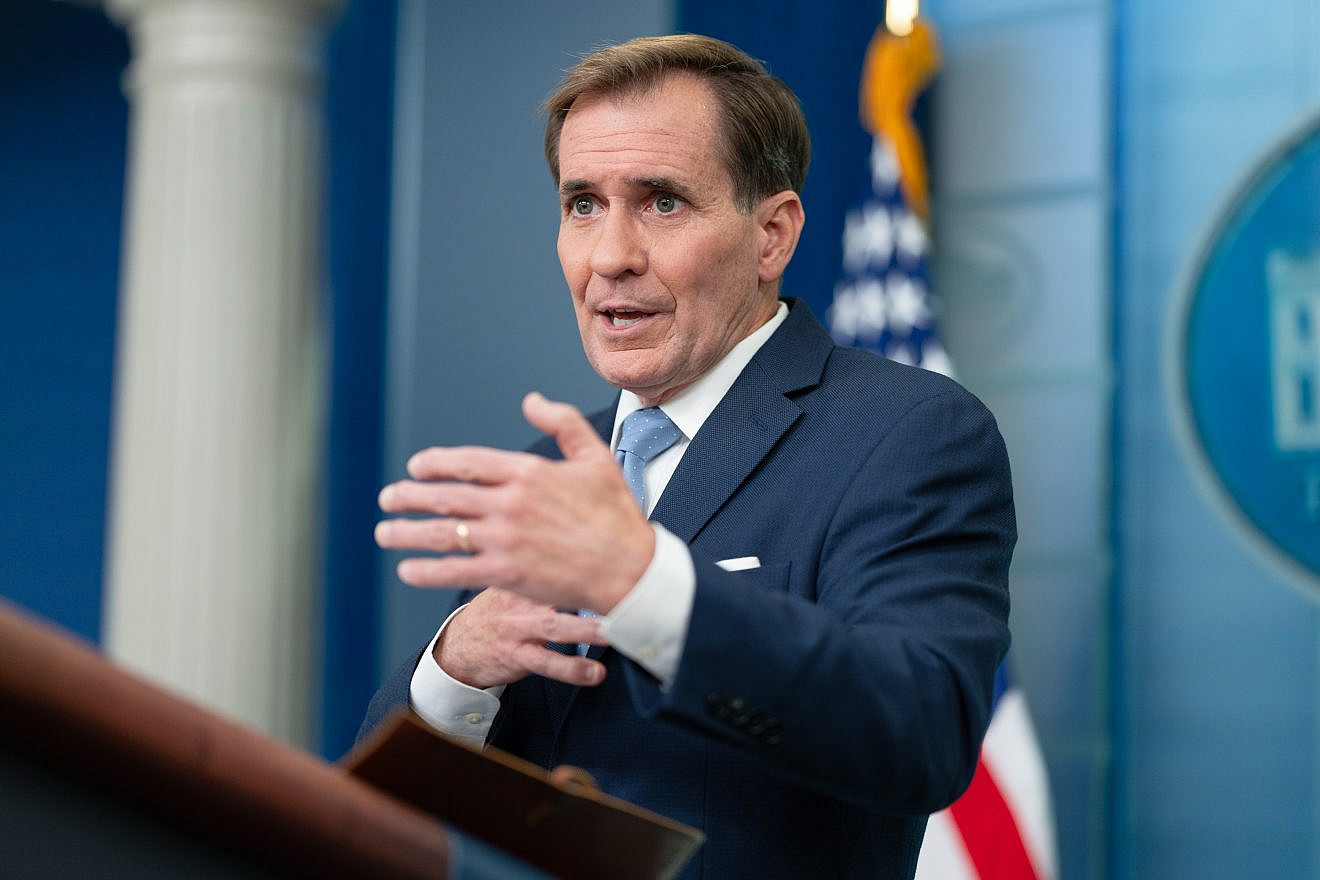An Iranian attack on the Jewish state “could be this week,” although U.S. President Joe Biden “is confident that we have the capability available to us to help defend Israel should it come to that,” John Kirby, the White House national security communications advisor, told reporters at a press gathering on Monday.
The White House shares Israel’s “same concerns and expectations” about the potential timing of Iran’s reaction to the July 31 assassination of Hamas political leader Ismail Haniyeh in a heavily guarded Tehran guesthouse complex.
Israel has neither confirmed nor denied involvement, but Jerusalem is generally believed to have ordered and organized the killing of the longtime terrorist.
Washington and its allies “have to be prepared for what could be a significant set of attacks,” Kirby said. He declined to discuss specific U.S. intelligence assessments, adding that it is “difficult to ascertain at this particular time if there is an attack by Iran and or its proxies, what that could look like.”
On Thursday, the United States “fully expects” negotiations on an Israel-Hamas ceasefire and hostage release deal to take place as planned, according to Kirby. He conceded that a prior Iranian attack could derail those plans.
Israel has committed to sending a negotiating team either to Doha or Cairo. Hamas has indicated that it does not intend to show up.
The talks are being pushed by Washington, Cairo and Doha. Kirby told reporters that negotiators need to return to the table “and bring this deal to a close,” and said that he is confident that remaining details can “get hashed out.”
He echoed a point that he and other Biden administration officials have said for months—that if Hamas was serious about caring for the Palestinian people, “one way to prove that is show up, close it and let’s get it done.”
Kirby declined to speculate about a potential Israeli response to Iran’s planned attack.
Biden reportedly told Netanyahu to “take the win” and not respond any further to Iran’s unprecedented, large-scale attack from multiple fronts on Apr. 13, which was successfully defended by Israel, the United States, the United Kingdom, France and Arab allies.
“Israel’s decisions would be based on what was thrown at them, and what effect those attacks had on the Israeli population and Israeli infrastructure, and there’s no way I could possibly anticipate that now,” Kurby said.
He emphasized that the current focus is on diplomatic de-escalation and preparation for a potential attack.
Biden spoke earlier on Monday with British, French, German and Italian leaders.
In a joint statement, the leaders “expressed our full support for ongoing efforts to de-escalate tensions and reach a ceasefire and hostage release deal in Gaza,” along with “our support for the defense of Israel against Iranian aggression and against attacks by Iran-backed terrorist groups.”
The leaders called on Iran “to stand down.” They said they discussed “the serious consequences for regional security should such an attack take place.”


























